Photographs: Kai Pfaffenbach/Reuters
Go to bed at 2 a.m., up at 11. Have a late breakfast. Nap. Then a late lunch, wander around, grab an energy drink. Try to focus.
Many Olympic ski jumpers have had to alter their routines to ensure they stay sharp for jumping events that start at 9:30 pm local time (1730 GMT) and often do not wrap up until well after midnight.
The timing perfectly suits television audiences in nations which adore the sport such as Finland, Norway, Austria, Germany, Switzerland and Slovenia.
For athletes it is another story.
'You have to stay awake'
Image: Nicholas Fairall of the United States lands after a jump.Photographs: Al Bello/Getty Images
"It's a little more difficult in trying to stay ready for the competition throughout the day just because you have more time, you have to stay awake," said Nicholas Fairall of the United States.
The Sochi Games are not the first to hold the jumping event at night - Turin did the same in 2006. But the late start time is unprecedented for the Olympics.
'My mood is better when the sun is shining'
Image: Schlierenzauer of Austria.Photographs: Stanko Gruden/Agence Zoom/Getty Images
The World No 4 Gregor Schlierenzauer of Austria flashed his usual mischievous smile when asked how he stayed alert.
"I have a good sponsor," he said. The 24-year-old has a deal with energy drink manufacturer Red Bull.
Yet not everyone is as relaxed about the idea.
"I like it when the sun is shining, and my mood is better when the sun is shining," said Anders Jacobsen of Norway, who nevertheless conceded the late starts were perfect for viewers.
"The people are at home and are sitting in front of the television and eating candy and drinking and having a good time," he added.
'It's a little bit strange'
Image: Michael Hayboeck of Austria looks during the Men's Large Hill Individual.Photographs: Lars Baron/Getty Images
European World Cup competitions often start around 5-6 pm central European time, and given that Sochi is three hours ahead of virtually all of Europe, some athletes have decided to stay on home time.
"We get up very late, at about 11 o'clock, and try to get a little rest in the afternoon ... we eat breakfast at 11 and lunch at three and that's the rhythm from home," said Austria's Michael Hayboeck.
"We go to bed at 2 or even 3:30 am ... it's a little bit strange, of course," said the 22-year-old, who won the qualifying round for Sunday's large hill event.
'Atmosphere at night is a lot more electric'
Image: Anders Johnson of the United States lands after a jump during the Men's Normal Hill Individual Qualification.Photographs: Al Bello/Getty Images
Jumping in the dark is almost a misleading term since the eight enormous floodlight stands towering over the hills provide as much illumination as the sun does in the daytime.
Some actually find the experience more enthralling.
"The atmosphere at night is a lot different; it's a lot more electric. I think when people come to evening events under stadium lights there's something about it," said Anders Johnson of the United States.
One big challenge is the wind.
'Everybody prefers front wind because there is more feeling under the skis'
Image: Jernej Damjan of Slovenia jumps during the Men's Normal Hill Individual.Photographs: Julian Finney/Getty Images
Ski jumpers prefer headwinds, which cushion athletes and allow them to drift further. Night jumping is known for its backwinds, which cut distances.
"In the mountains the thermal works in the morning when the air is heating up and in the evening the air is going down so there is a backwind ... everybody prefers front wind because there is more feeling under the skis," said Jernej Damjan of Slovenia.
'The wind is really quiet'
Image: Sebastian Colloredo of Italy in action during the Men's Ski Jumping HS106 Qualification.Photographs: Mike Hewitt/Getty Images
Russian organisers say the hills were located specifically to cut down on winds. If need be a special wind protection nets can be raised inside two minutes.
"In this place if there is some sun and we jump in the morning, it's a really big difference ... if we jump at 2 o'clock there is a lot of wind," said Sebastian Colloredo.
"Now the wind is really quiet," said the Italian, who was - of course - speaking to reporters just before midnight.

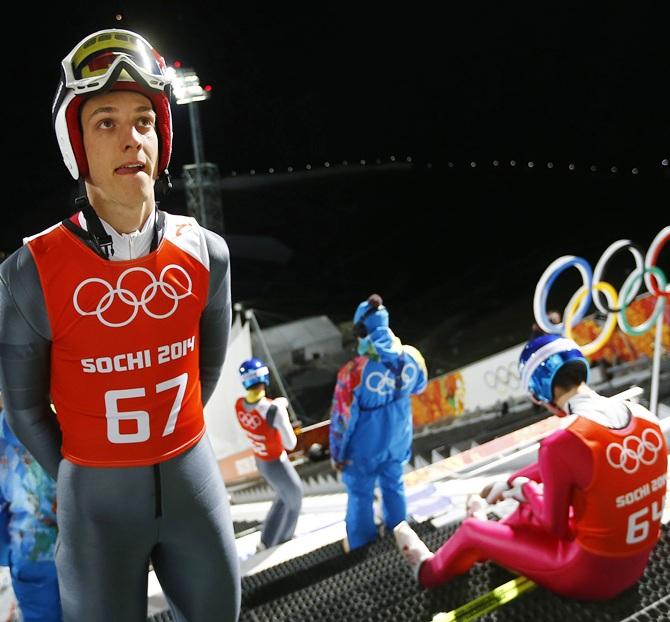
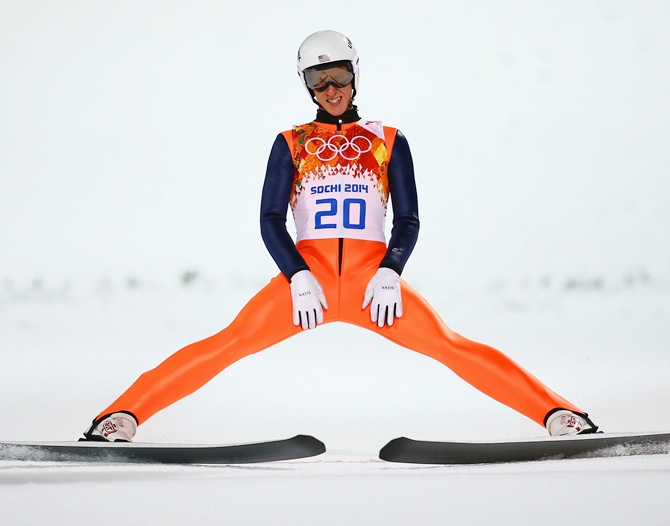
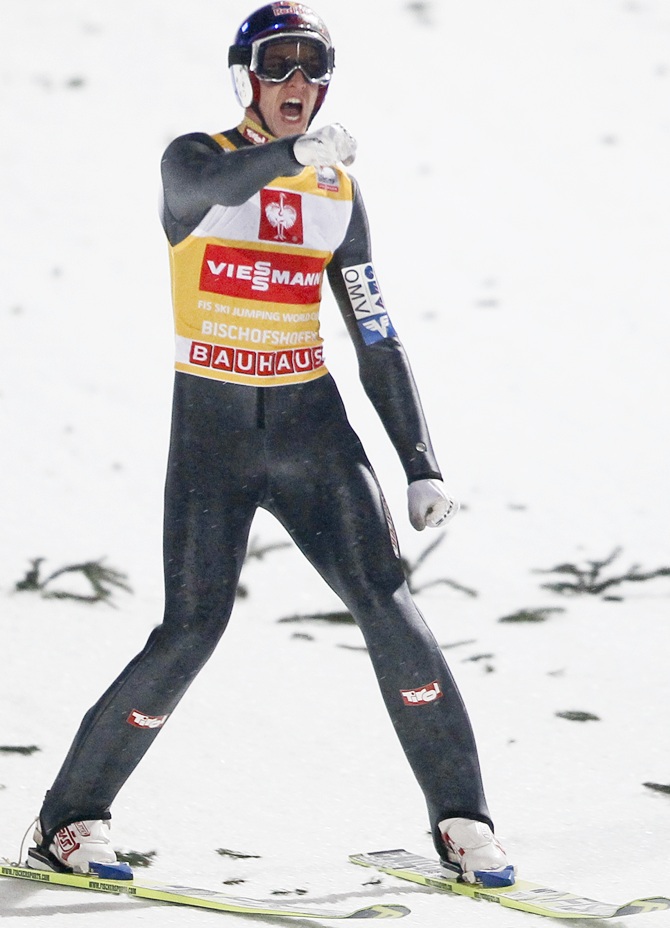
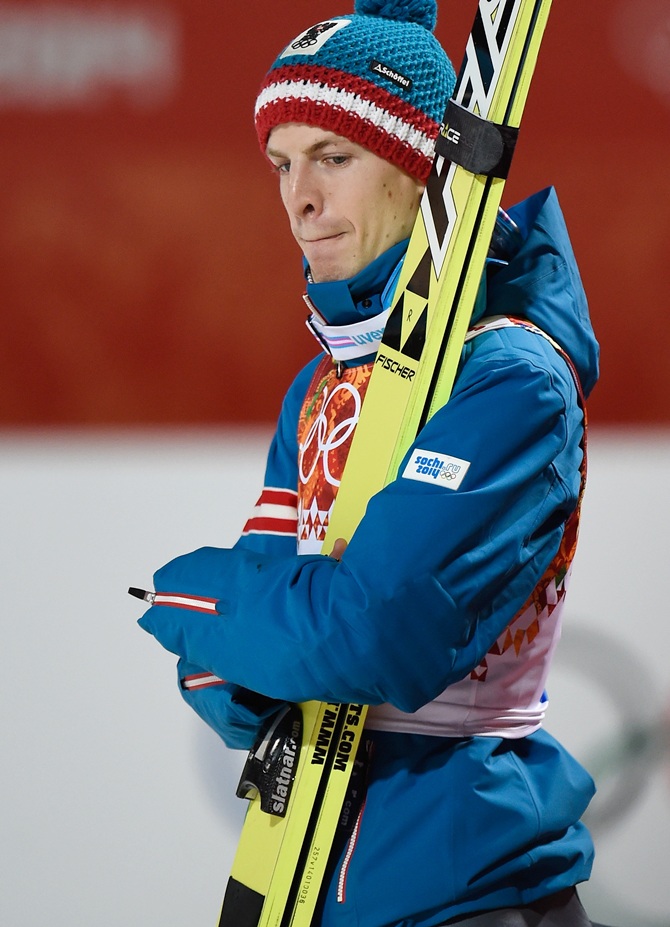

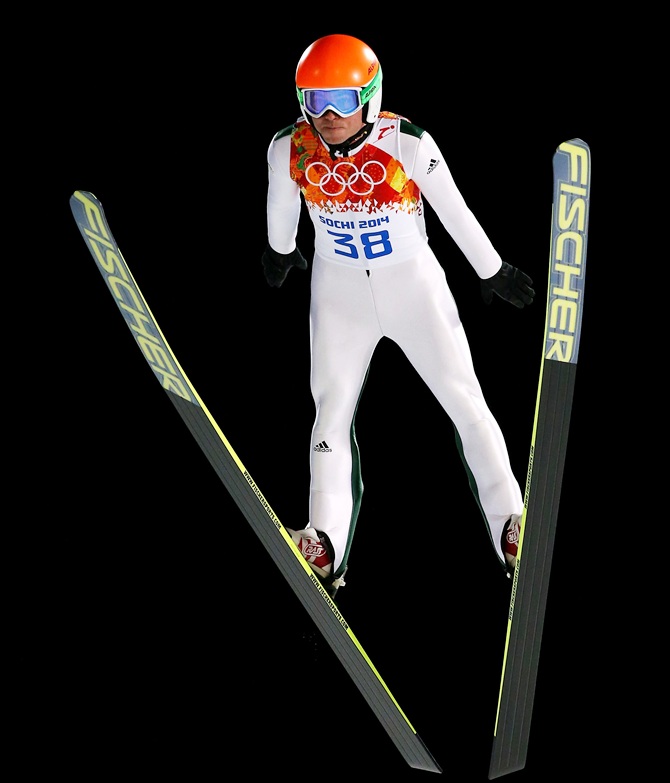
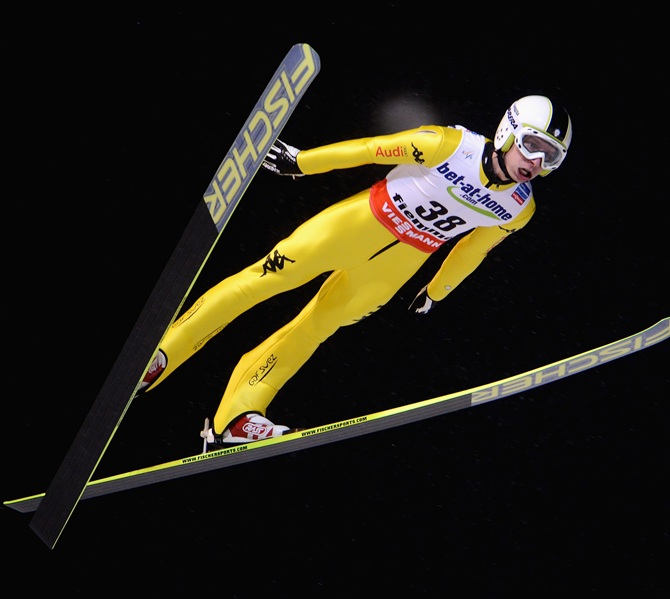

Comment
article